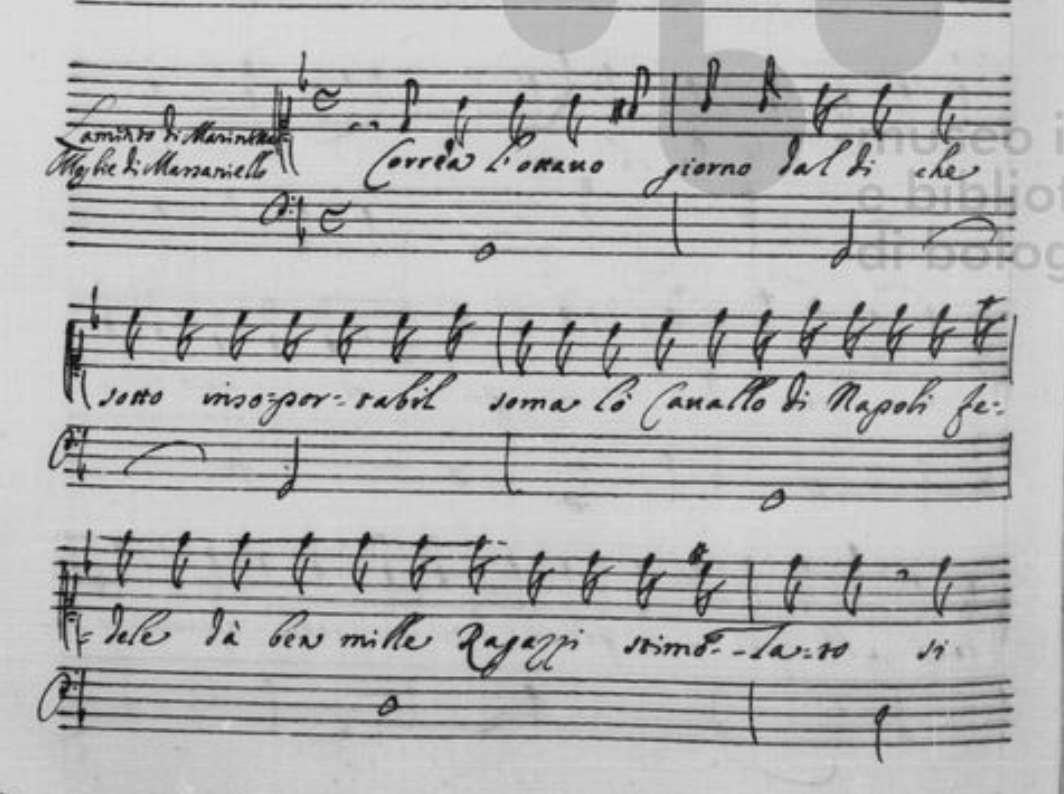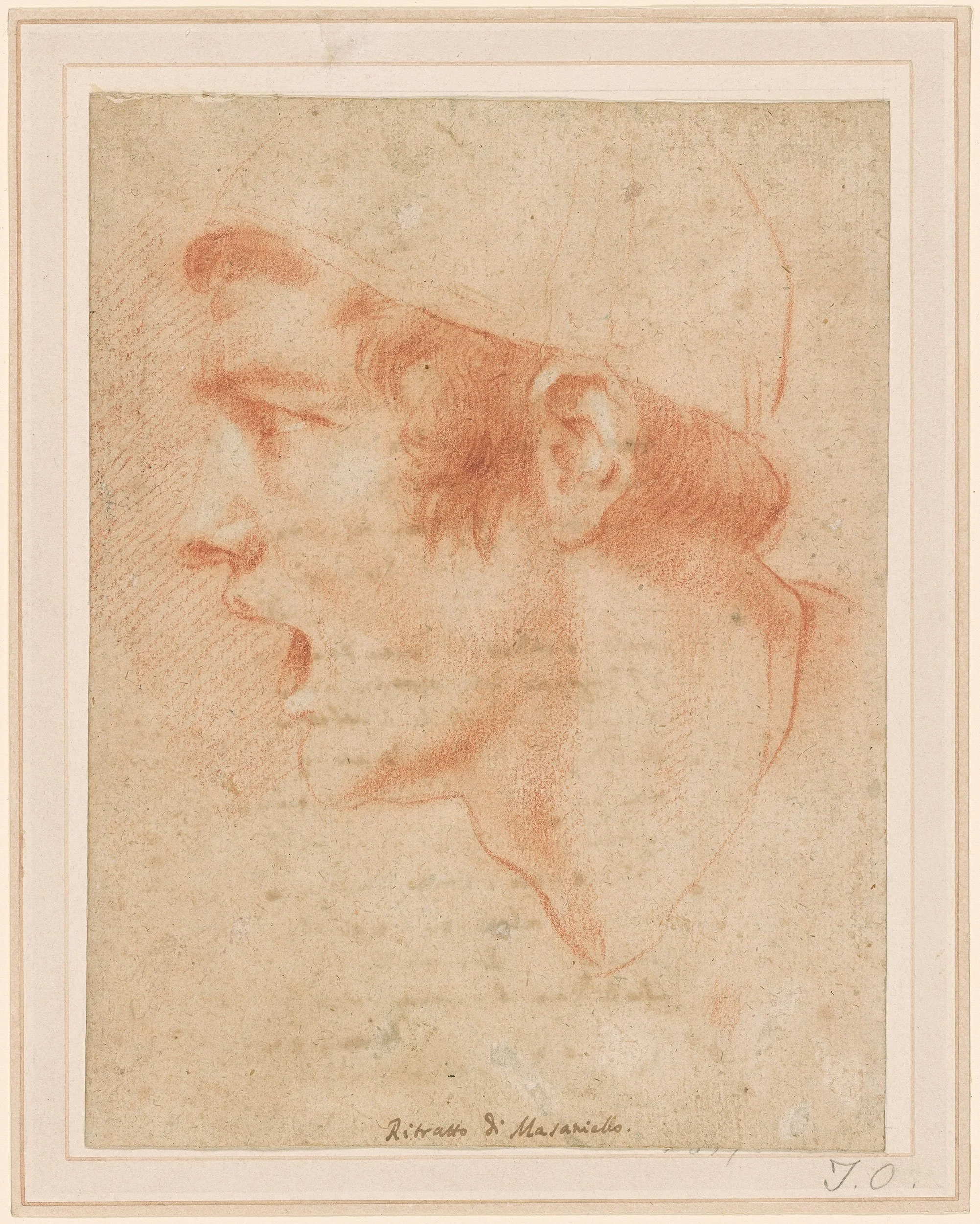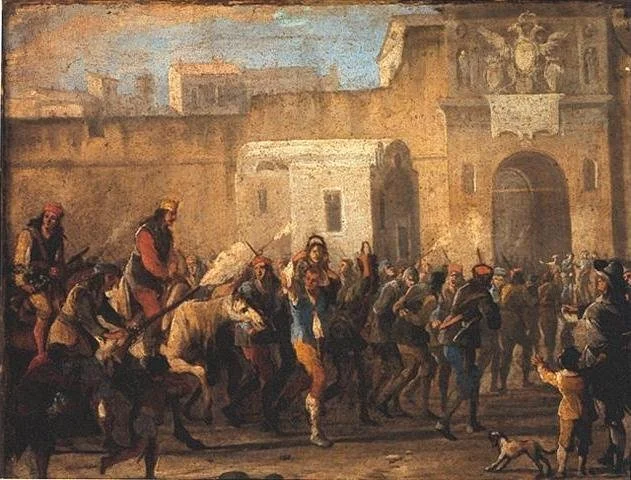Correa l’ottavo giorno: Lamento di Marinetta moglie di Massaniello from I-Bc MS Q.47
In the seventeenth century, amid the backdrop of political turmoil in Naples, an interesting piece of music emerged known as ⏵︎ “Lamento di Marinetta, moglie di Massaniello.” This anonymous cantata, composed in the recitativo style with a text by Francesco Melosio, centers on the widow of Massaniello, a Neapolitan fishmonger who briefly led a 1647 anti-Spanish revolt.
“Correa l’ottavo giorno” (Lamento di Marinetta, moglie di Massaniello).
From Museo Internazionale e Biblioteca della Musica di Bologna, MS Q47, ff.87v-94v.
Its source, I‑Bc Q47, is an extensive 252-folio manuscript that houses a collection of vocal compositions by renowned Roman composers like Marazzoli, Carissimi, Caproli, and others.
Poesie e prose del sig. dottor. Francesco Melosio da Città della Pieue. (1678).
The composition is a blend of solemnity and satire, featuring a grieving widow who exhibits a range of emotions, including rage, acceptance, and even admonition, complemented by the incorporation of naturalistic touches, Neapolitan pronunciation, and political puns. This creates a unique and engaging musical narrative.
Head of a Screaming Man in Profile, known as a Portrait of Masaniello ca. 1640-43.
Despite the bold language of the text, the anonymous composer opted for a more restrained musical approach, closely adhering to Francesco Melosio's austere formal design. The verses are predominantly delivered in syllabic recitative, with minimal melodic embellishment. Notably, a pair of ottonari adopts an aria style.
Punizione dei ladri al tempo di Masaniello, Micco Spadaro, circa 1647.
The historical context of this piece reflects the complex political landscape of the time, with Naples in upheaval and shifting alliances between Spanish and French powers. This lament serves as a window into the tumultuous events of the era and the artistic responses they inspired.
References:
Bianconi, L. (1987). Music in the Seventeenth Century. Spain: Cambridge University Press.
Fabris, D. (2017). Music in Seventeenth-Century Naples: Francesco Provenzale (1624-1704). United Kingdom: Taylor & Francis.
Holzer, R. R. (1990). Music and Poetry in Seventeenth-century Rome: Text. United States: University of Pennsylvania.



